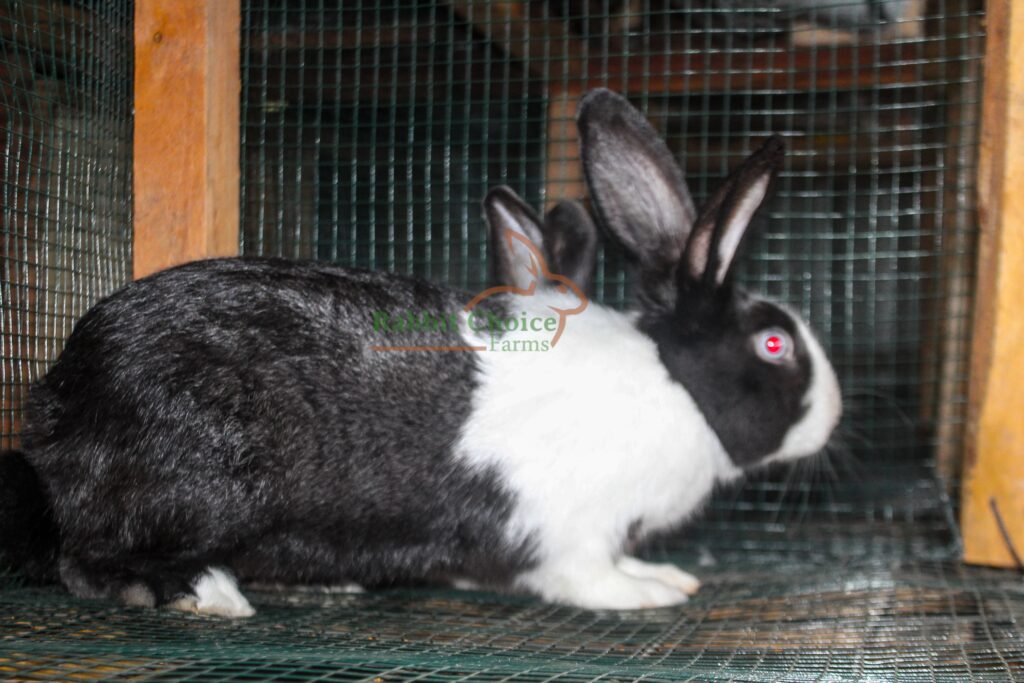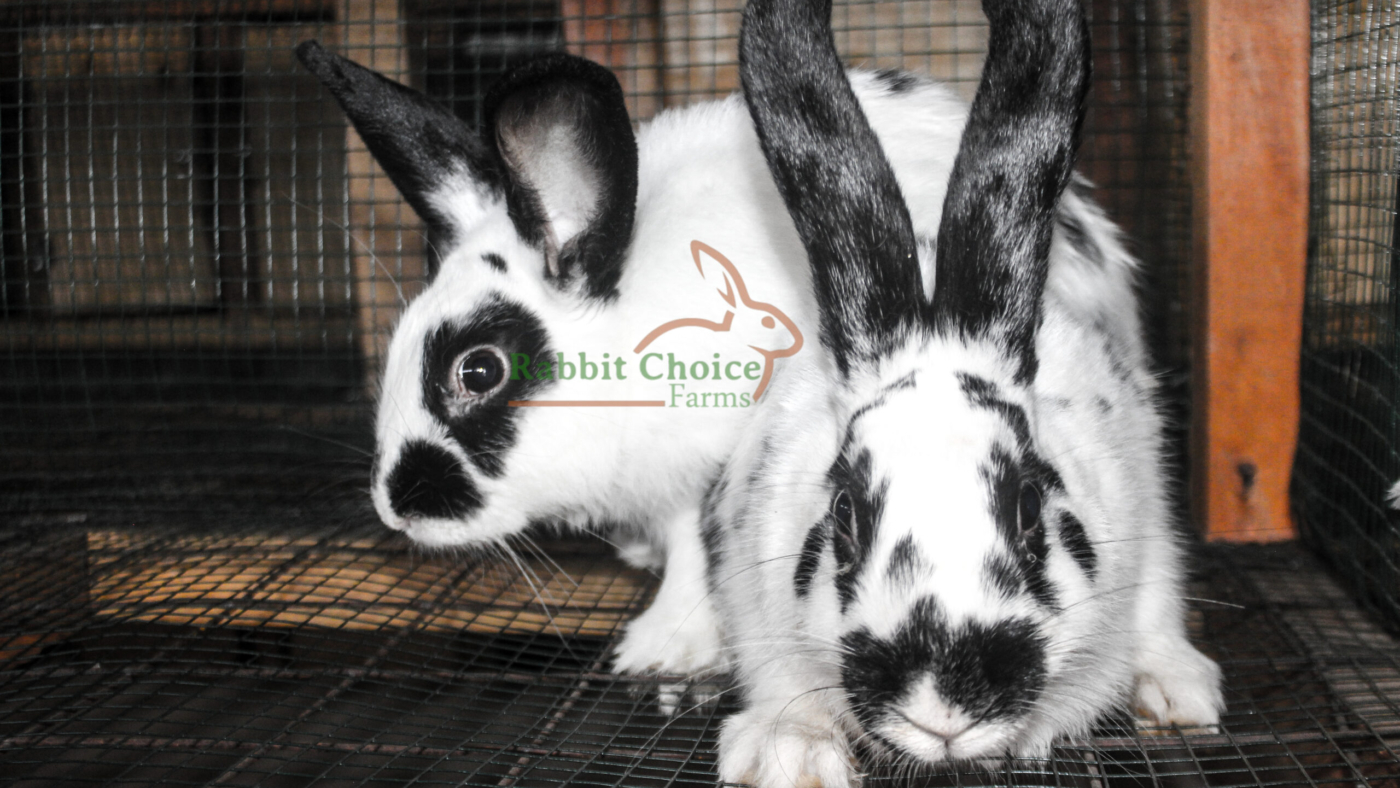Starting and managing a commercial rabbit farm is Kenya can be a rewarding venture, offering both financial and personal fulfillment. However, like any business, it comes with its own set of challenges and questions.
Whether you are a newcomer to the world of rabbit farming or looking to expand your existing operations, understanding the ins and outs of commercial rabbit farming is crucial.
In this guide, we’ll address the most frequently asked questions about commercial rabbit farming. Let’s get started:
Is Rabbit Farming Profitable?
Yes. Rabbit farming can be highly profitable when managed effectively. Rabbits are prolific breeders and have relatively low maintenance costs compared to other livestock.
Here’s how:
- A doe’s reproduction cycle: A healthy doe can give birth to an average of 6 kits every two months, amounting to 36 kits per year.
- Lifespan of a doe: A doe can live and remain productive for 3-5 years, giving birth to approximately 108 to 180 kits in her productive lifetime.
- Market readiness: Kits reach market weight (around 3-4 kg) within 4-5 months, making the production cycle relatively short.
- Feed consumption: Rabbits feed on rabbit pellets, hay, wilted vegetables, and water. You graduate the quantity of pellets from 25g, 50g, 75g to 100g at maturity.
- Pellet cost: A kilogram of pellets costs approximately 50 (Ksh)/ Kg. Thus, feeding one kit to maturity costs 400-600 Ksh.
- Market price: Mature rabbits typically sell for Ksh 900–1,500 each, depending on their weight and the market demand. (At rabbit choice farms, we currently buy mature rabbits at 300/kg Live weight)
- Profit margin per rabbit: Assuming an average sale price of Ksh 1,200 and feeding costs of Ksh 600, the profit per rabbit is Ksh 600. You should also factor in costs like housing, labor, and veterinary. Ideally, with proper breeding, you should break even after your 5th sale.
With proper management, you can expand your rabbitry within a short period and create a reliable income stream.

What are the advantages of rabbit farming?
Keeping rabbits as a commercial venture comes with various benefits. Some advantages you’ll enjoy include:
- High reproductive rate– each producing 6 to 12 kits per litter with multiple litters yearly.
- Low investment and maintenance costs since you need small spaces, minimal feed, and relatively low start-up costs.
- Rabbits grow fast, attaining market weight (2.5–4kg) in just four or five months.
- Rabbit meat is lean and nutritious– healthy, low-fat, high-protein alternative.
- Rabbit farming gives multiple revenue streams from selling meat, live rabbits, rabbit urine, manure, etc.
- Rabbit meat and other products have constant demand. For instance, at Rabbit Choice Farms, we guarantee to buy the rabbits back from you if you get our breeding stock.
- Rabbits are disease resistant requiring simple care for and management.
What is the best cage design for rabbit farming in Kenya?
The best cage design for rabbit farming in Kenya incorporates a self-cleaning mechanism that ensures hygiene and ease of maintenance. These cages use a rabbit mesh and wire mesh floor to allow droppings to fall through while providing comfortable support for the rabbits.
Beneath the floor, translucent slanted plastic sheets or gutters are installed to trap and guide urine into a collection container or drainage system.
This separation of waste prevents contamination, reduces odor, and minimizes the buildup of ammonia, which can cause respiratory issues in rabbits. Additionally, the translucent material makes it easy to monitor and clean the system, ensuring optimal functionality.
This rabbit housing design benefits you by allowing you, improved hygiene, reduced labor for cleaning, and better overall rabbit health. The effective separation of droppings and urine helps prevent diseases like coccidiosis while also allowing you to collect manure and urine.
The structure is also well-ventilated to further reduce humidity and odor, creating a productive and sustainable farming system suited to Kenya’s growing rabbit farming industry.
The cages should also be big enough (ideally 2 feet by 2 feet by 2.5 feet) to allow the rabbits to stretch and move around freely.
What should I feed my rabbits to help them gain weight?
To help your rabbits gain weight in a healthy and sustainable way, you need a balanced diet that includes rabbit pellets, hay, wilted vegetables, and water.
Let’s look at these in detail:
- Rabbit pellets: These are high in protein and energy, making them essential for weight gain. They provide a nutritionally balanced diet with all necessary vitamins and minerals. Use pellets with 16–18% protein and avoid sugary additives.
- Hay: This is critical for digestion and dental health due to its high fiber content. Look for hay, which is rich in protein and calcium, especially for weight gain in underweight or young rabbits. Always provide unlimited hay daily.
- Wilted vegetables: Vegies like carrots, kale, and spinach provide essential vitamins and nutrients while being easier to digest than fresh ones. They add variety to the diet and can support weight gain when introduced gradually. Give vegetables occasionally.
- Fresh, clean water: Water is essential for hydration, digestion, and nutrient absorption. Ensure rabbits have constant access to clean water, as dehydration can hinder weight gain and overall health. Refresh the water daily.
Read our detailed guide on getting your rabbit to gain weight faster.
How can I find buyers for rabbit meat in Kenya?
Several companies in Kenya specialize in buying rabbits for meat.
At Rabbit Choice Farms, we buy live rabbits from farmers. We process and sell the meat. The rabbits have to be healthy, hybrid with an average weight of 3kgs. If you bought the breeder stock from us, we guarantee to buy from you once your kits are ready for market.
Do you have rabbits ready for selling? Fill out this form, and we’ll get back to you.
Other companies that buy live rabbits include RABAK (Rabbit Breeders Association of Kenya) and Rabbit Crew Kenya.
Image credit: Rabbit Crew Kenya
These companies prefer live rabbits to ensure proper slaughter and meat preparation under hygienic conditions, in line with health and safety standards.
You can also opt for supermarkets and high-end grocery stores that often sell specialty meats like rabbit meat—approach them to offer your product. Hotels, restaurants, and resorts may also demand rabbit meat as a delicacy; connecting with chefs or procurement teams can open opportunities for regular supply.
Don’t forget to sell your rabbit meat to friends, family, and neighbors who value its health benefits. This small-scale approach can provide consistent demand, and word-of-mouth recommendations can help you grow your customer base.
Where can I buy rabbit meat locally in Kenya?
- Rabbit Choice Farms: We offer high-quality, hygienically prepared rabbit meat. We are a trusted supplier for both individuals and businesses.

Order now on +254715 626955
- Supermarkets: Leading chains like Naivas and Carrefour often stock rabbit meat in their specialty meat sections.
Photo credit: Local Supermarket
- Local butcheries: Some butcheries, especially in urban or high-end areas, carry rabbit meat—check with those offering diverse meat options.
- Farmers and online platforms: Farmers sell rabbit meat directly, often advertising on platforms like Facebook Marketplace or agriculture-focused WhatsApp groups, ensuring freshness and affordability.
Is there a growing demand for rabbit meat in Kenya in 2025?
According to Statista, the overall meat market in Kenya is projected to grow by 10.51% between 2024 and 2029, with an expected volume of 1,509 million kilograms by 2029. Specifically, a volume growth of 5.8% is anticipated in 2025.
Google Trends shows a sustained increase in the “Rabbit Meat” Search term in Kenya over the past five years. This shows a demand in the same.
Another research shows that after a decline in 2020, the demand for rabbit meat in Kenya has been on a significant increase of 0.4%, reaching a value of $3.4 million
How Can Rabbit Choice Farms help me with rabbit farming in Kenya
Rabbit Choice Farms offers comprehensive, end-to-end solutions for farmers in Kenya to ensure a successful and sustainable rabbit farming venture. Here’s how we can help:
- Training: We provide expert training to equip you with essential skills and knowledge on rabbit farming. This covers best practices in breeding, feeding, and handling rabbits, as well as tips for optimizing production and maintaining healthy livestock. Book our commercial rabbit farming training this and every Thursday in 2025.
- Rabbit cages construction services: We offer professional rabbit hutch construction services. Our team helps build durable, well-ventilated, and hygienic rabbit hutches that promote healthy conditions for the rabbits. This is key to maximizing productivity and preventing diseases.
- Disease management: Our services include advice on proper disease management practices, regular health checks, and access to veterinary support.
- Selling quality rabbit breeders: We provide high-quality rabbit breeds that are hybrids to help you start or expand your rabbit farming operations. These breeders are selected for their strong growth rates, disease resistance, and high reproductive performance, ensuring that farmers can achieve maximum profitability.
- Buying back rabbits: We offer contract farming, where we purchase rabbits from farmers for meat production. This gives you a consistent market for your rabbits, allowing you to sell your livestock at competitive prices.
Got a question on rabbit farming? Post it on the comment section below or send us on +254715 626955

 Cart is empty
Cart is empty 
Rabbit
Hello Nick, how can we assist?
Am interested in rabbits business.where can I buy the rabbits?
We sell rabbits. Contact us on +254715626955
Where is your training facility located and how much is your training please?
Our Farm is in Joska, Kangundo road. Call 07156266955 to get slotted for the next training